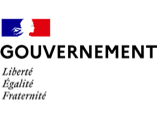The right actor at the right time
The healthcare ecosystem is vast and complex. It's essential to quickly identify the key players and their interactions with your digital project.
Who can support you, what can you expect from them, and when to call on them?

Panorama of digital healthcare players.
In recent years we have been witnessing a digital transformation of healthcare in France and around the world.
This is reflected in the development of new solutions, new digital platforms or innovation projects in this sector.
The ecosystem around this transformation is dense, complex and highly diverse. Companies and startups are constantly innovating and reinventing digital healthcare tools to serve patients and healthcare professionals, in order to improve the quality of care and secure all processes.
In order to successfully create these solutions or implement these services, companies need to be able to identify which healthcare players to contact for support and advice in developing their digital projects.
There are several types of player:
- Support players at the service of companies and startups to guide them in their journey to create and develop innovations,
- Regulatory players, for the most part public sector bodies, each responsible for equality and respect for ethics in their field of activity. (Use of patients' personal data. With the rise of digital healthcare, millions of personal data pass through healthcare platforms, so they must be processed in compliance with data regulations (RGPD via the Commission Nationale de l'Information et des Libertés (CNIL)...) and ethically.
- the players providing care and treatment, healthcare professionals in particular, from whom innovators can find answers to their problems and practices to improve their solution.
- Finally, there are the funding players
All the players in digital healthcare must act to ensure that the healthcare system, its platforms and its information technologies evolve towards greater security and interoperability.
How can G_NIUS help me understand the digital health ecosystem?
The guichet national de l'innovation du numérique en santé (G_NIUS) provides practical tools and information to help you understand the digital health ecosystem. The aim of G_NIUS is to help you quickly identify the players essential to the development and financing of your project.
On G_NIUS you'll find educational fact sheets giving you the key information you need to know about the e-health players who can support you at every stage of your innovation project.
G_NIUS also features a map of France, enabling you to locate all the digital health players and events at a glance.
Identify as early as possible the player who can help you, what you can expect from them and when to contact them.




